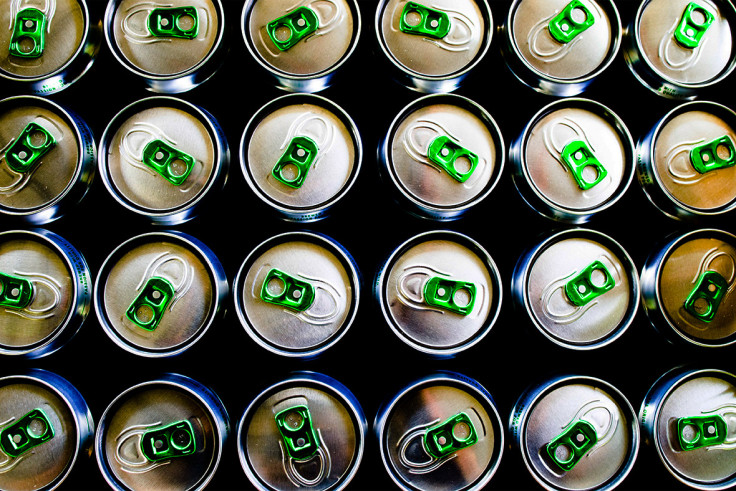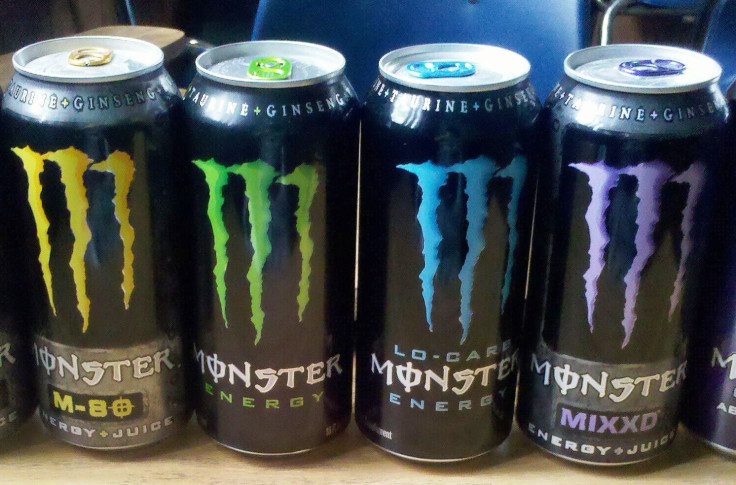Just how bad are energy drinks for your health?
As sales of energy drinks grow, so are energy drink-associated visits to hospital.

From Red Bull to Monster and Relentless, more than 500 energy drink products are available on the market. A far cry from the current trend for health foods, caffeine-pumped, sugary energy drinks are growing in popularity – with the market for these drinks worth $39m ($30m) in 2013, and predicted to soar to $61m by 2021.
Energy drinks are marketed for their perceived benefits as a stimulant – and although there is no standard definition of an energy drink, it is generally understand that they are non-alcoholic drinks that contain caffeine, an amino acid called taurine and vitamins, as well as other ingredients.
But as sales of energy drinks grow, so are energy drink-associated visits to emergency departments, and deaths – which has led to questions from health experts over their safety. In recent years, studies have begun to point out the potential health risks associated with the drinks.
Earlier this year, it was announced the father of 19-year-old Dustin Hood was suing the Monster Energy drink company – claiming the firm's drink caused his son's fatal cardiac arrhythmia in 2015. The teenager had drunk three and a half 725ml cans of the energy drink over a 24-hour period, before collapsing on a basketball court.
Heart health
This week brought more bad PR for energy drink companies. A study published on Tuesday (26 April) found that the drinks have the potential to trigger "life-threatening" changes in blood pressure and the heart.
The study, published in the Journal of the American Heart Association, found that drinking just 32ozs of a commercially available energy drink resulted in more "profound" changes in the heart's electrical activity and blood pressure, compared to the same amount of a controlled drink containing the same amount of caffeine.
Caffeine is generally recognised as being safe in doses less than 400mg, as per US Food and Drug Administration guidelines. In one 250ml can of Red Bull, there is 80mg of caffeine and 25g of sugar, and in a 500ml can of Monster, there is 160mg caffeine and 55g of sugar.
But as the researchers point out in the new study, little is known about the additional ingredients in these drinks – and what happens when they are consumed with high doses of caffeine.
Taurine can affect the levels of water and minerals in your blood and seeds of guarana, often added to energy drinks as well as caffeine, already contains around twice the concentration of caffeine found in coffee seeds.
"Although the cardiovascular safety profile of caffeine has been relatively well established, there is little published literature on the electrophysiologic and hemodynamic changes with multi-ingredient energy drinks," the researchers said.
This is why the study came with a stark warning – people who have high blood pressure, underlying cardiac conditions or other health issues might want to avoid consuming energy drinks, at least until more is known about their impact.

Caffeine overdose
Energy drinks were originally introduced in Japan in the 1960s but became popular in the UK in the 1980s and 1990s, in part, due to the rise of rave culture. And in any bar or club now, you'll likely see energy drinks mixed with alcohol – sometimes in huge quantities in jugs or bowls.
Unaware of how much energy drink they are consuming, caffeine overdose is a real risk. The NHS has a long list of immediate symptoms, including palpitations, nausea, high blood pressure, convulsions. The worst cases can result in death, the NHS warns.
The NHS warns of other problems associated with drinking energy drinks – including type 2 diabetes, poor dental health and obesity. Pregnant women who consume energy drinks run the risk of miscarriages and stillbirths.
As is the case with any stimulant, addiction is also a risk – and the results can be as detrimental to the body as alcohol abuse.
Last year, a 26-year-old woman from Devon spoke out about her addiction to energy drinks – which she claimed had left her liver twice the size it should be. Her liver was so badly damaged that the doctors thought she was an alcoholic. Although an extreme example, it shows how dangerous energy drinks can be when consumed in excess.
Children
Many energy drinks have sponsorship deals with sport franchises and are aggressively marketed as having the ability to improve performance – so it is easy to understand why they appeal to young people and children.
One former energy drink consumer, who didn't want to be named, said his habit cost him his health.
"I drank four cans of Monster every weekday from when I was 16 for about 18 months, before passing out in a lesson at school while at sixth form. I regained consciousness fairly quickly and was taken to hospital with an extremely high heart rate, where I was told I had PSVT (Paroxysmal supraventricular tachycardia), an abnormal heart rhythm that I had never suffered from before," he said.
"I was given medication for the condition and told to cut out energy drinks immediately, which I did, as well as cut down on caffeine and try to avoid any rigorous sports – which was an issue as I played rugby. It took a few weeks to recover a fairly normal heart rate, though I had quite a few recurrences of PSVT, normally when running or doing exercise.
"I haven't had a bad episode now for about two years, but do have medication to take should anything happen, and both my doctor and I believe that drinking excessive energy drinks daily had a major impact on my health, given I had led a healthy and sporting lifestyle until then."
As of 2014, the European Food Safety Authority estimates that 30% of adults and 68% of adolescents consume energy drinks. It also found a whopping 18% of children below 10 years consume energy drinks.
It doesn't take a genius to work out high levels of caffeine are not good for kids. Studies have shown caffeine can affect moods, increase anxiety, lead to stomach problems and affect your sleep, which is particularly detrimental for children, as it impacts growth and development.
"As energy drink sales are rarely regulated by age, unlike alcohol and tobacco, and there is a proven potential negative effect on children, there is the potential for a significant public health problem in the future," the World Health Organization said.
Only some European Union countries have brought in regulations, such as Sweden, which has banned sales to children. Health experts have continuously called for energy drinks to be banned for under-16s in the UK, but so far, these calls have fallen on deaf ears.
© Copyright IBTimes 2025. All rights reserved.






















